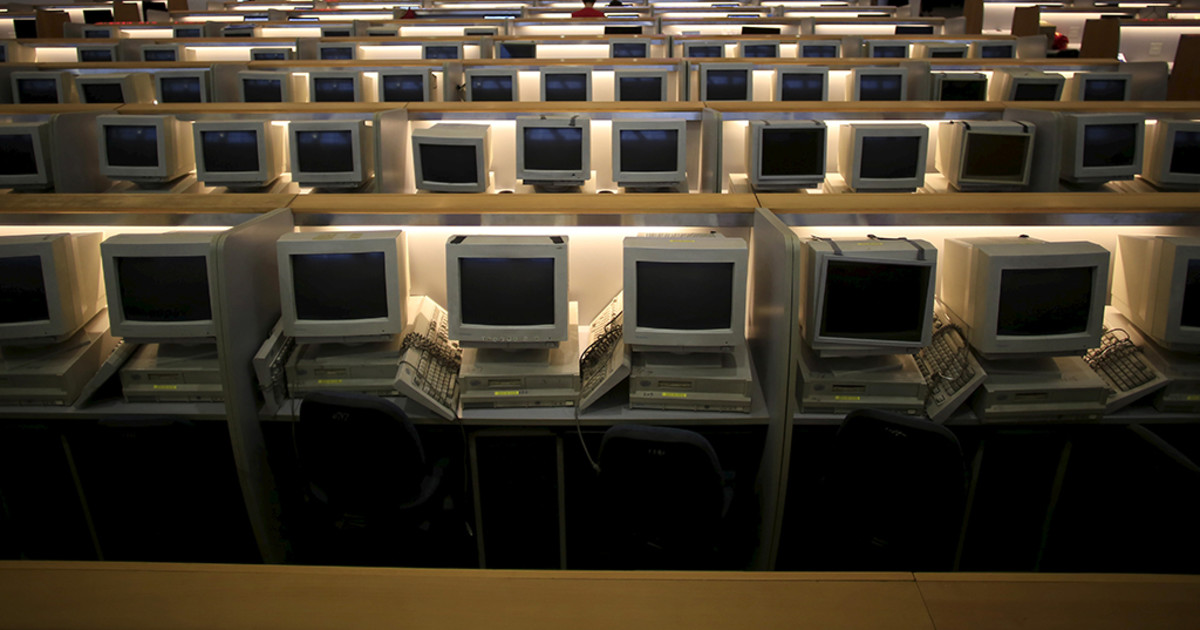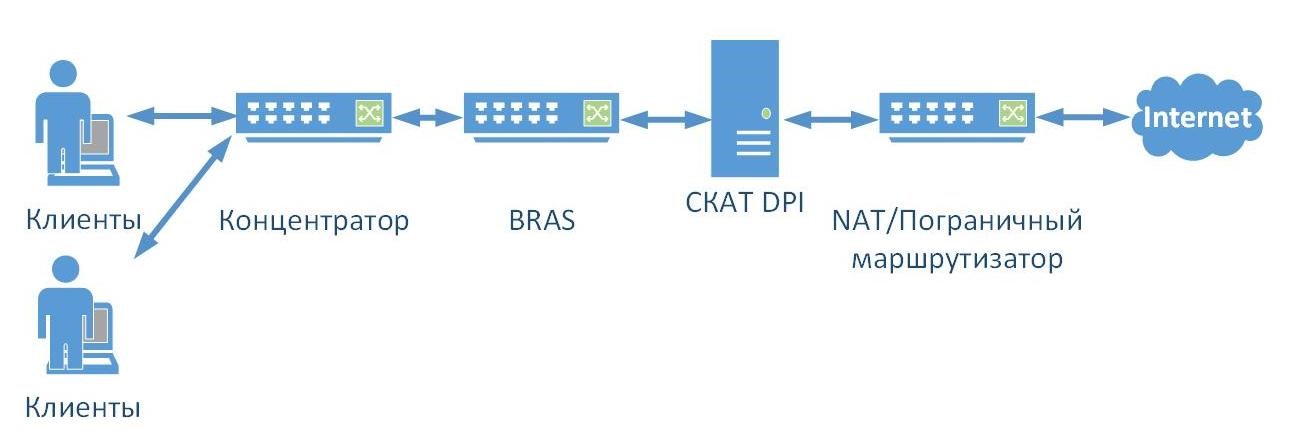Background: "Autonomous Runet" - what it is and who needs it

Last year, the government approved an action plan in the direction of "Information Security". This is part of the Digital Economy of the Russian Federation program. The plan introduced a bill on the need to ensure the work of the Russian segment of the Internet in case of disconnection from foreign servers. The documents were prepared by a group of deputies headed by the head of the committee of the Federation Council, Andrei Klishas.
Why does Russia need an autonomous segment of the global network and what goals do the authors of the initiative pursue - further in the material.
Why do we need such a bill?
In a TASS commentary, lawmakers said : “It creates an opportunity to minimize the transfer of data abroad, which Russian users exchange among themselves.”
')
The document on the goal of creating an autonomous RuNet states : “In order to ensure the stable functioning of the Internet, a national system is being created for obtaining information on domain names and (or network addresses) as a set of interconnected software and hardware designed to store and obtain information about network addresses in relation to domain names, including those included in the Russian national domain zone, as well as authorization when resolving domain names. ”
The authors of the document began to prepare a bill "in view of the aggressive nature of the US national cybersecurity strategy adopted in September 2018", which proclaims the principle of "maintaining peace by force", and Russia, among other countries, "is directly and without proof of hacker attacks."
Who will govern everything if the law is passed?
The bill says that Roskomnadzor will establish the rules for traffic routing and monitor the implementation of these rules. The ministry will also be responsible for minimizing the volumes of Russian traffic that passes through foreign communication centers. The responsibility for managing the network infrastructure of the Internet in critical situations will be placed on a special center. It has already been created in the radio frequency service under the jurisdiction of Roskomnadzor.
The new structure , according to the government, should be created in the coming months. It should be called the "Public Communications Network Control Center". The government gave a year for Roskomnadzor to develop software and hardware tools for monitoring and managing a public telecommunications network.
Who, for what and how much will pay?
Even the authors of the bill find it difficult to say how much a fully autonomous Runet will cost the budget.
Initially, lawmakers said they were talking about 2 billion rubles. This year, the authors were going to master about 600 million of this amount . Later information appeared that a sovereign Runet would soon rise in price to 30 billion .
Only the purchase of equipment that will ensure the safety of the Russian segment will cost 21 billion rubles. Approximately 5 billion will be spent on collecting information about Internet addresses, autonomous system numbers and connections between them, traffic routes on the Internet, and another 5 - to manage specialized software, plus the development of software and hardware tools for collecting and storing information.
It is still not clear who will pay for everything: either all funds will go from the budget, or new infrastructure will be created at the expense of telecom operators, who will have to install equipment and maintain it on their own.
The original document states that “the issues of operation and modernization of these facilities are not regulated, including in terms of the financial support of these processes, as well as liability for damage caused by failures of communication networks caused by the operation of these facilities, including to third parties ".
Only in the middle of March last year, Federation Council proposed to pay operators for the implementation of the bill from the budget . Thus, the legislators submitted another document with an amendment on compensation from the budget of the operator’s costs for servicing equipment for its implementation. In addition, providers will be freed from liability for network failures to subscribers in the event that the cause of these failures is new equipment.
“Since the technical equipment planned for installation will be purchased at the expense of the budget, the maintenance of these devices should also be compensated from the budget,” said Senator Lyudmila Bokova, co-author of the amendments.
The funds will mainly go to the installation of the DPI-system (Deep Packet Inspection), which was developed in RDP.RU. Roskomnadzor chose the equipment of this particular company after conducting tests of seven different Russian manufacturers.
“According to the results of testing on the Rostelecom network last year, the DPI system from RDP.RU received, so to speak, a“ test ”. There were some questions from the regulators to it, but in general, the system was successfully tested. Therefore, I am not surprised that testing was decided to be more extensive. And to deploy more operators on the networks already, ”Anton Sushkevich, co-owner of RDP.RU , told reporters .

Scheme of the DPI-filter ( Source )
DPI-system is a software and hardware complex that analyzes a component of a data packet passing through a network. The components of the package are the header, destination and sender address, and body. Here is the last part of the DPI-system and will analyze. If earlier Roskomnadzor looked only at the destination address, now the signature analysis will have a value. The composition of the package body is compared with the standard — the well-known Telegram package, for example. If the match is close to one, the packet is discarded.
The simplest DPI traffic filtering system includes:
- Network cards with Bypass mode, which connects the interfaces on the first level. Even if the server power suddenly stops, the link between the ports continues to operate, letting traffic through battery power.
- Monitoring system. Remotely monitors network performance and displays them on the screen.
- Two power supplies that can replace each other if necessary.
- Two hard drives, one or two processors.
The cost of the RDP.RU system is unknown, but the regional scale DPI-complex consists of routers, hubs, servers, communication channels and some other elements. Cheap such equipment can not be. And if you consider that DPI needs to be established for each provider (all types of communication) at each key communication point across the country, then 20 billion rubles may be far from the limit.
How are telecom operators involved in the implementation of the bill?
Operators will install the equipment themselves. They are responsible for operation and maintenance. They will have to:
- adjust telecommunication message routing as required by the federal authority;
- to allow domain names to use servers operating in the Russian Federation;
- provide information in electronic form on subscribers' network addresses and their interaction with other subscribers, as well as information on telecommunication message routes to the federal executive body.
When to start?
Very soon. At the end of March 2019, Roskomnadzor suggested that operators from the “big four” test the Runet for “sovereignty”. Mobile communications will become a kind of testing ground for testing the “autonomous Runet” in action. Testing will not be global, tests will be conducted in one of the regions of Russia.
During the test, the operators will test the equipment for deep traffic filtering (DPI), developed by the Russian company RDP.RU. The purpose of testing is to test the performance of the idea. At the same time, telecom operators were asked to provide information about the device of their network to Roskomnadzor. This is necessary in order to select a region for testing and find out in which configuration you need to install the DPI equipment . Select a region within a few weeks after receiving data from operators.
DPI-equipment will provide an opportunity to check the quality of blocking resources and services prohibited in the Russian Federation, including Telegram. Plus, they will test and limit the speed of access to individual resources (for example, Facebook and Google). Domestic lawmakers are not satisfied with the fact that both companies generate a very significant amount of traffic without investing anything in the development of the Russian network infrastructure. This method is called traffic prioritization.
“With DPI, you can quite successfully prioritize traffic and reduce the speed of access to YouTube or any other resource. In 2009–2010, when torrent trackers became popular, many telecom operators set themselves DPI just to recognize p2p traffic and reduce download speed on torrents, as the communication channels did not withstand such a load. So, operators already have experience of pessimizing certain types of traffic, ”says Diphost CEO Philippe Kulin.
What difficulties and problems does the project have?
In addition to the high cost of the project, there are a few problems. The main one is the lack of development of the document on the “autonomous RuNet” itself. This is indicated by participants and market experts. Many points are unclear, but something is not specified at all (as, for example, the source of funds for implementing the provisions of the draft law).
If the introduction of a new system into operation, operators will have problems, that is, the work of the Internet will be disrupted, then the state will have to compensate operators for about 124 billion rubles a year. This is a huge amount of money for the Russian budget.
The President of the Russian Union of Industrialists and Entrepreneurs (RSPP), Alexander Shokhin, even sent a letter to State Duma Speaker Vyacheslav Volodin, stating that the implementation of the bill could cause a catastrophic failure of communication networks in Russia .
Source: https://habr.com/ru/post/446806/
All Articles